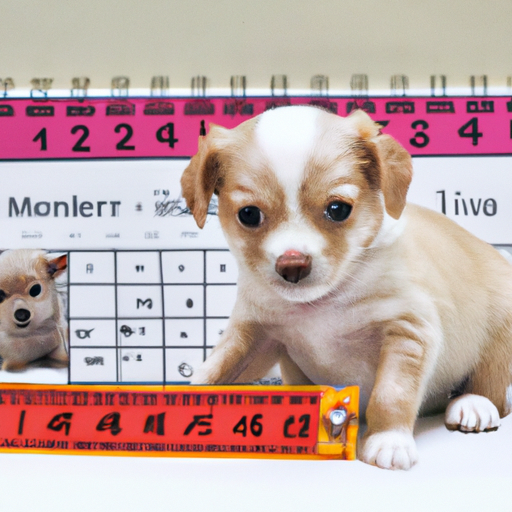As a caregiver, it’s only natural for you to wonder about your puppy’s growth rate. The following segments will provide you with a detailed overview of this fascinating subject.
Understanding Puppy Growth
Puppies grow at a remarkable rate. One day, they’re tiny balls of fur in the palm of your hand, and the next, they’re bounding around the house like a full-grown dog. This rapid growth is influenced by factors such as breed, diet, and overall health.
Growth Phases of Puppies
Puppies go through several stages of development:
- Neonatal Phase (0-2 weeks): Puppies are born blind and deaf. They rely solely on their mother for survival.
- Transitional Phase (2-4 weeks): Puppies begin to open their eyes and ears. They start to explore their surroundings.
- Socialization Phase (4-12 weeks): Puppies interact with their siblings and humans. This is a crucial period for their behavioral development.
- Juvenile Phase (3-6 months): Puppies start to resemble adult dogs. They become more independent and curious.
- Adolescence (6-18 months): Puppies go through puberty. Their behavior can be challenging during this period.
- Adulthood (18 months and beyond): Puppies reach physical maturity. Their behavior becomes more consistent.
Factors Affecting Puppy Growth
Several factors can affect how quickly a puppy grows:
- Breed: Larger breeds tend to grow more rapidly than smaller ones.
- Nutrition: A balanced diet is crucial for healthy growth.
- Health: Illness or parasites can hinder a puppy’s growth.
A Breakdown by Breed
Different breeds of dogs grow at different rates. Here’s a rough guide:
| Breed | Time to Reach Full Size |
|---|---|
| Small Breeds (e.g., Chihuahua, Dachshund) | 6-8 months |
| Medium Breeds (e.g., Border Collie, Bulldog) | 12-16 months |
| Large Breeds (e.g., Labrador, German Shepherd) | 18-24 months |
| Giant Breeds (e.g., Great Dane, Saint Bernard) | Up to 30 months |
Ensuring Healthy Growth
To ensure your puppy grows healthily:
- Provide a balanced diet.
- Regularly exercise your puppy.
- Regular veterinary check-ups are essential.
- Keep your puppy’s environment safe and stress-free.
When to Be Concerned
If your puppy’s growth seems slower than usual, consult a vet. It’s better to be safe than sorry. Warning signs may include lethargy, loss of appetite, or stunted growth.
Common Myths about Puppy Growth
There are many myths about puppy growth. Some of them include:
- “Puppies grow at the same rate.” This is false, as growth rates vary by breed.
- “Feeding puppies more will make them grow faster.” Overfeeding can lead to obesity, not healthy growth.
- “Puppies stop growing after one year.” This is also false. The growth timeline depends on the breed.
FAQ
When do puppies stop growing?
Small breeds usually reach their full size by 6-8 months, while giant breeds can take up to 30 months.
How can I tell if my puppy is growing properly?
Regular vet check-ups will ensure your puppy is growing at a healthy rate. A sudden change in size, weight, or behavior may indicate a problem.
What should I feed my puppy to support their growth?
A diet rich in proteins and essential nutrients is crucial. Consult with your vet to determine the best diet for your puppy.
Should I be concerned if my puppy is growing too fast?
Rapid growth can lead to health problems, particularly in large breeds. If you’re worried, it’s best to consult a vet.
Can I predict how big my puppy will get?
While it’s difficult to predict exactly, a rough estimate can be made based on the size of the puppy’s parents and the breed’s typical adult size.



